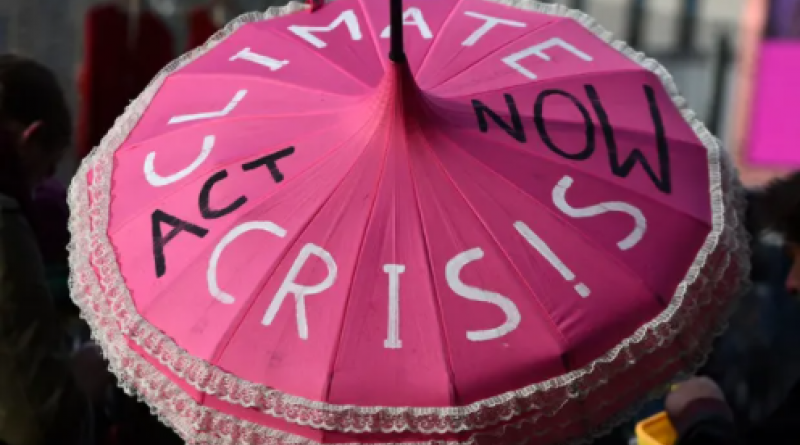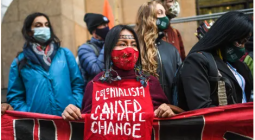Climate-vulnerable countries call for help forcing high emitters to act

Those most at risk warn countries such as Australia they will lose out economically if they do not raise targets
Some of the countries most vulnerable to climate breakdown have called on the UN and the UK and other countries who want to lead the climate fight to help them ensure high emitters upgrade their carbon targets, as called for at the Cop26 summit.
They added that countries such as Australia, which has refused to embrace strong carbon-cutting targets, would lose out economically.
But they said it would be “an uphill battle” to ensure adequate revisions to national carbon targets, and that all those who wanted to see climate action must use the next year to put pressure on the governments that had inadequate plans.
At Cop26 in Glasgow, countries came forward with emissions-cutting targets, known as nationally determined contributions (NDCs), that would lead to an estimated 2.4C of heating above pre-industrial levels, far in excess of the 1.5C set out in the 2015 Paris climate agreement.
All countries agreed to return next year to a conference in Egypt with reviewed targets. However, some countries are reluctant to strengthen their targets – Australia, whose target is widely deemed inadequate, has already signalled its refusal, while the US and the EU have said their targets are good enough.
Selamawit Wubet, a programme coordinator at the Climate Vulnerable Forum (CVF), told the Guardian: “Around half of all parties met the Paris agreement deadline [to produce new NDCs by the end of 2020]. So it will be an uphill battle to encourage countries to revise them again.
“What is most crucial is to have a common voice from all key actors: the Cop presidencies [of the UK, which hosted Cop26, and Egypt, host of Cop27], the UNFCCC [United Nations Framework Convention on Climate Change] secretariat, the UN secretary general, as well as key negotiation and party blocs.”
She said being able to review each country’s NDC speedily would be key, adding that Cop26 showed that “countries can come up with better contributions when expectations are very clear for that”.
Members of the CVF, which represents more than 55 countries and more than 1.4 billion people around the world in places most at risk from extreme weather, told the Guardian their efforts had at least partly paid off before Cop26.
Wubet pointed to the CVF’s “barometer”, an evaluation of NDCs up to 31 December 2020, which the bloc is looking to repeat before the next Cop in November 2022. The United Nations Environment Programme also performed “robust evaluations” of individual NDCs, though Wubet noted it did not pass judgment where baseline and other differences required additional calculations, and the UNFCCC published a “synthesis report” taking the NDCs in aggregate.
“Some other technical partners also track NDCs but there is varying evaluation criteria, whereas it’s very important to be clear whether a country did in fact increase ambition or not versus their previous NDC,” she said.
Sara Ahmed, a finance adviser to the V20 group of 20 finance ministers from the CVF, said countries should recognise the benefits of cutting emissions and moving to a greener economy, which would create jobs and improve health.
She told the Guardian: “The pressure to deliver is not only a survival deadline and political, it is economic and financial in nature. The shift to a low-carbon and climate-resilient economy translates to greater socioeconomic gains. There are more jobs in renewable energy than fossil fuel.”
The energy crisis, resulting in high gas prices around the world, pointed to the economic benefits of a low-carbon economy, Ahmed added. “The current market volatility of fossil fuels and high spot prices will impact balance of supply and demand, and investor pressure will only continue to build. The 1.5C limit is the only way forward to safeguard global financial stability in today’s highly interconnected world.”
She added: “High emitter laggard countries not only break the trust the world has given them, but likely suffer economically. For example, failure by Australia to deliver 1.5C-compatible climate targets this decade will shrink Australia’s GDP by 6% and lock in an increase in net debt in New South Wales to 100% by 2060, with taxpayers ultimately footing the bill.”
The government of Bangladesh, as chair of the CVF, issued a statement welcoming the outcome of Cop26. The chair said: “The vulnerable nations brought demands for urgency to Cop26 in particular on keeping 1.5C alive, reaffirming delivery of crucial climate finance, and accelerating adaptation through stronger finance.
“On all these priorities of the most climate threatened nations Cop26 has delivered substantial progress: 1.5C is alive even if it remains on lifeline watch. We have nine years left to cut global emissions in half and the world has recognised the urgency of the situation in Glasgow – now the hard work begins back home in all the nations of the world to deliver on the Cop26 agreements.”
18 November 2021
The Guardian





